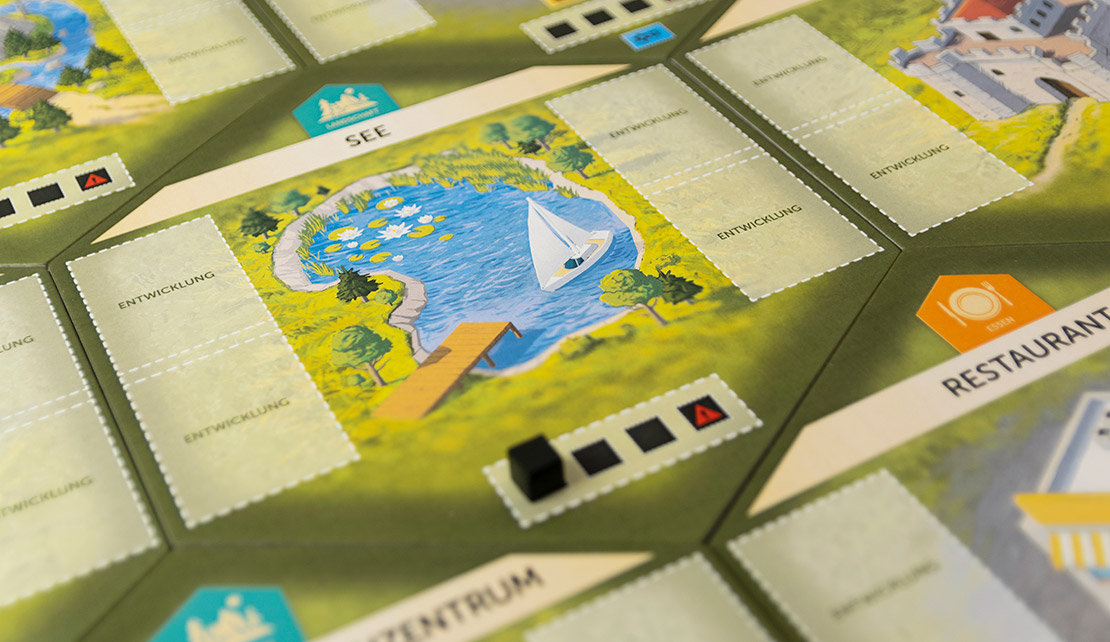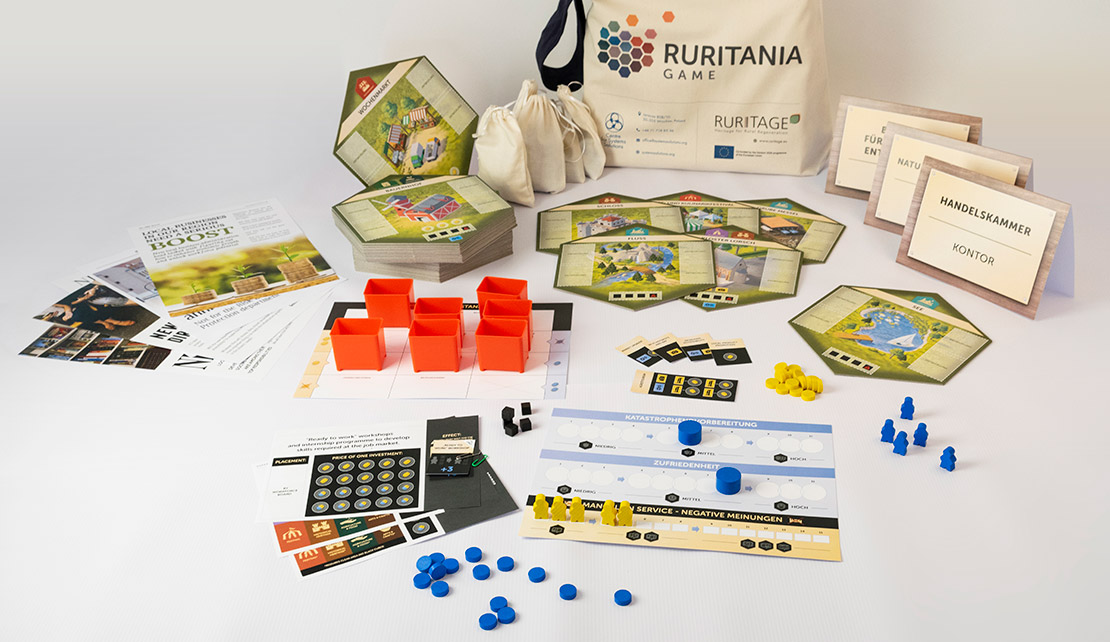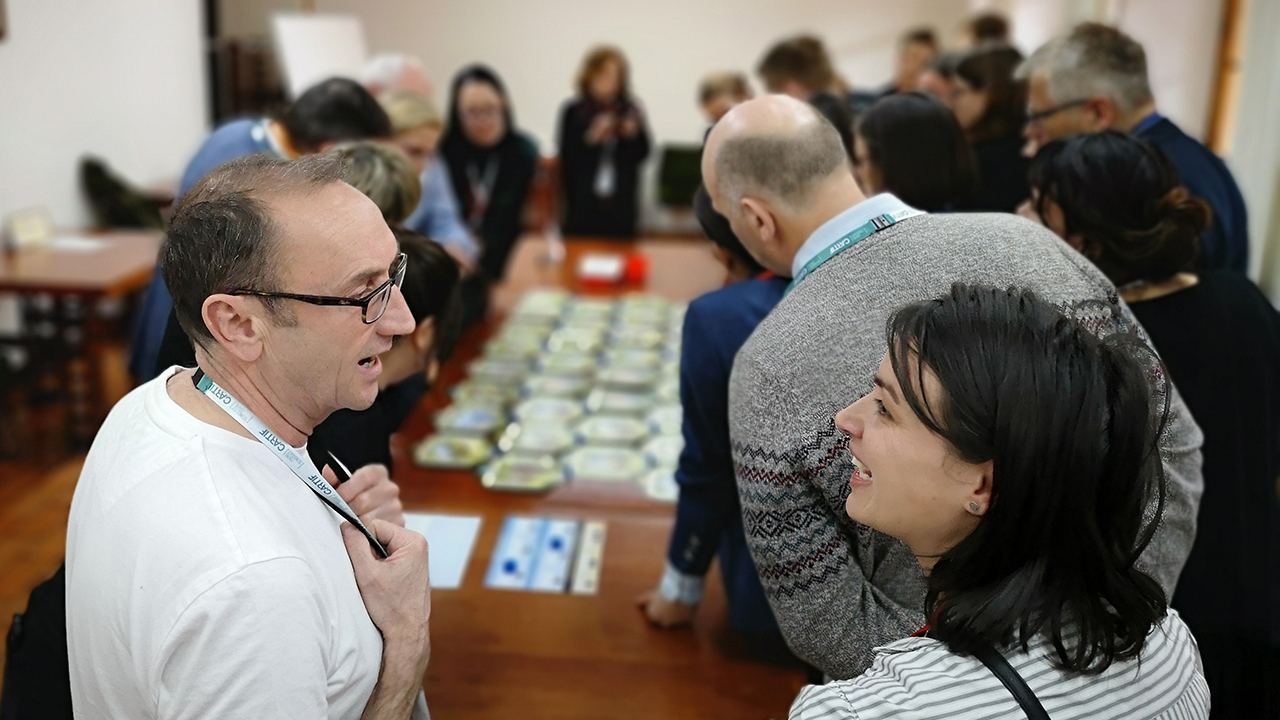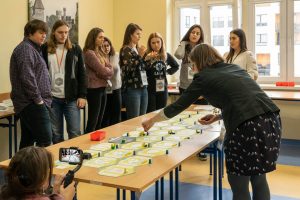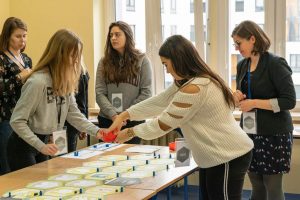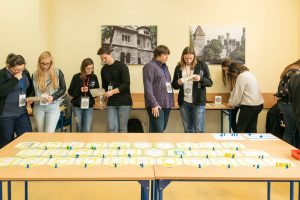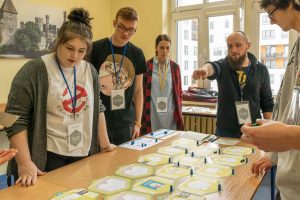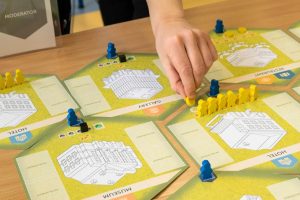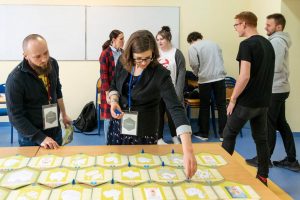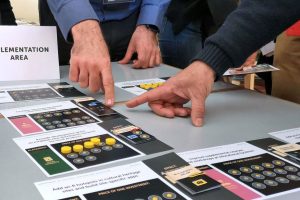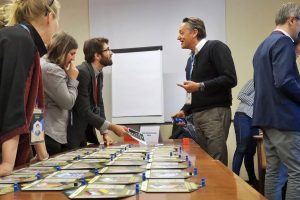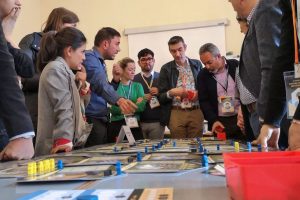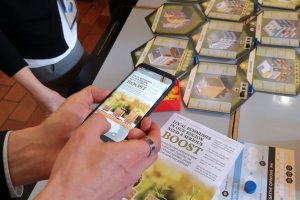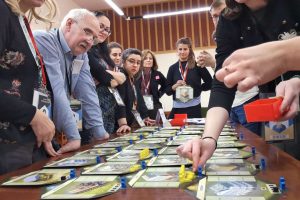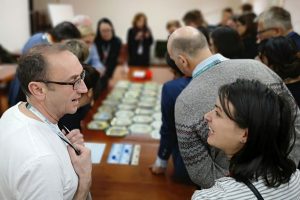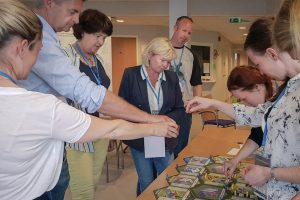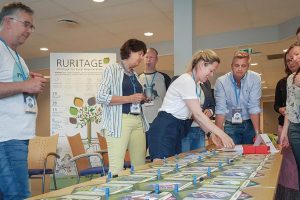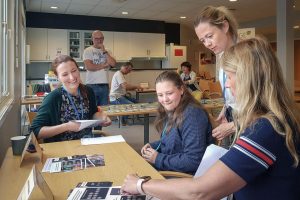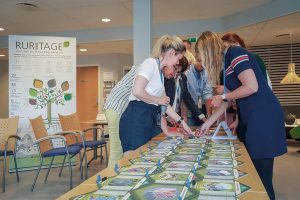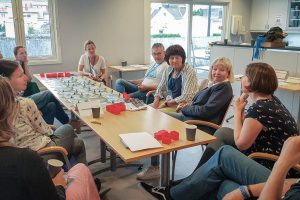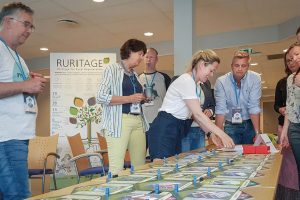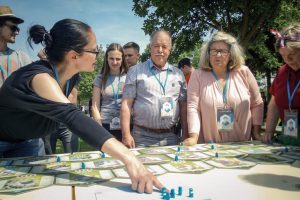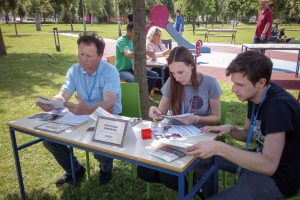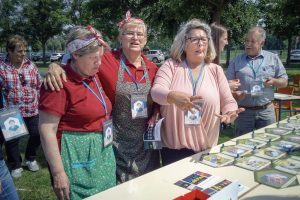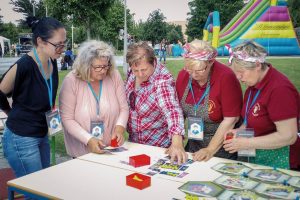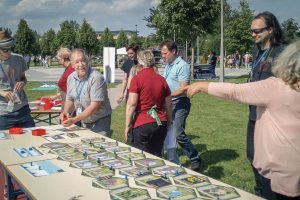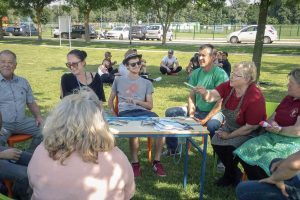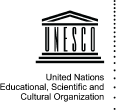improving local cooperation
towards rural regeneration
About the Game
The Ruritania Game was co-developed and widely used by the RURITAGE project partners across Europe to engage local stakeholders: activists, teachers, policymakers, art & craft representatives, citizens, and business owners in discussions on how to sustainably approach revitalization and address other regional challenges.
Playing the Ruritania Game helped these stakeholders find common ground and develop a joint incentive to act, thus accelerating local development. While exploring solutions in a simplified reality, stakeholders were able to build connections and get motivated to take action towards a common cause.
First, project partners were engaged in the co-creation of the Ruritania Game. Then, they used it to trigger discussions with stakeholders across Europe. The key question was how the existing cultural and natural heritage can boost rural regeneration.
Games designed for Replicators from all over the world had to include elements distinctive to each of these specific rural areas. The adjustment process entailed thus, among others, possibly the most faithful reproduction of the dominant features of each specific Systemic Innovation Areas (SIAs), taking into account characteristic landmarks, dominant types of production, the degree and quality of land use or jointly diagnosed current challenges, opportunities, natural hazards and any other problems in the area. All possible development scenarios implemented by the stakeholders taking part in the game sessions were based on good practices that had already been implemented by Role Models (RM) areas.
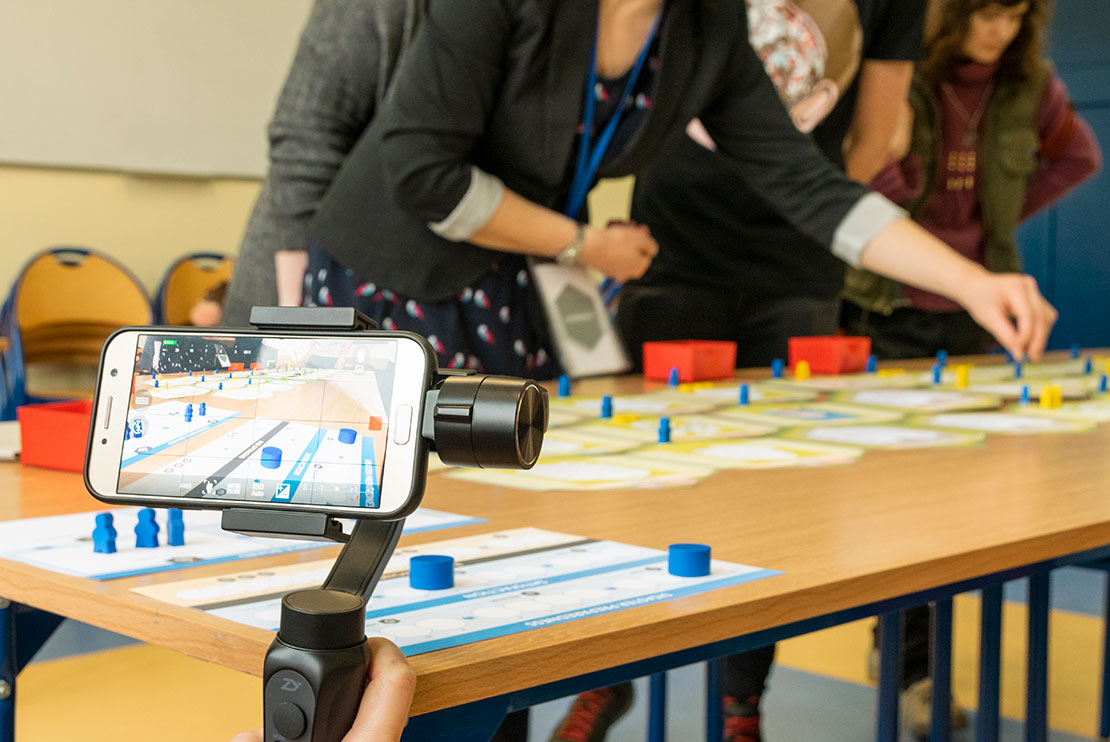
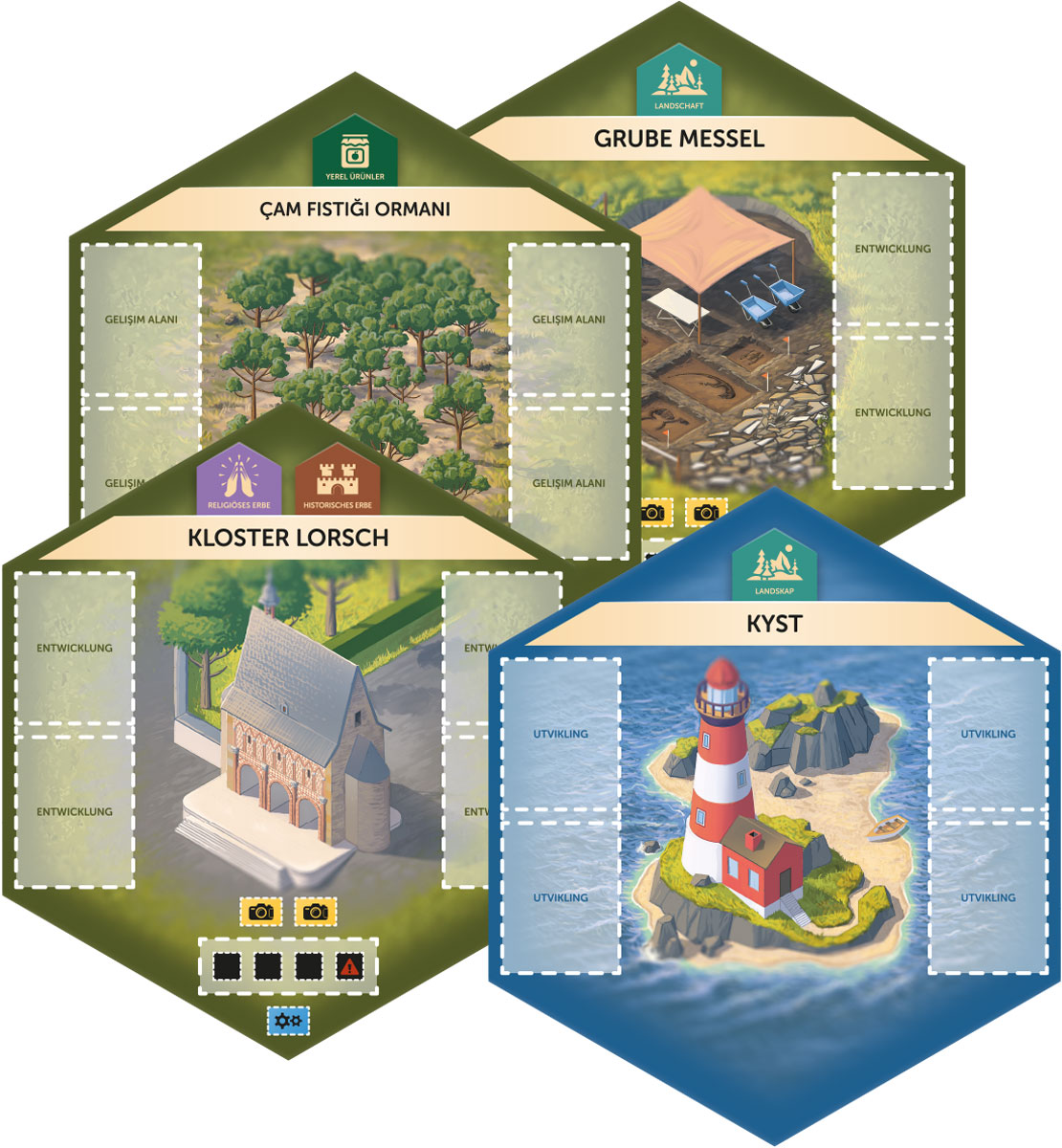
All the six rural areas, located across Europe, received a game version customized for their region. The game’s map reflected the region’s topography, its landmarks, as well as cultural and natural heritage. Participants made decisions about sustainable development in the area, drawing on real projects that had been already implemented in other places around the world (Role Models). Each game was created in the national language used in the area. Because they recognized familiar places, processes, challenges, and hazards, participants quickly engaged in cooperation.
Moreover, the existing universal edition of the game can be translated into any national language.
Would you like to obtain a customized version for your area? Or maybe you are interested in the universal edition of the game in your language?
We also offer training and supporting materials for moderators.
technical details
9-27 PLAYERS
3-4 HOURS
7 TABLES
applications
The Ruritania Game allows participants in many countries to take a closer look at the tradeoffs and synergies between various strategies aimed at rural regeneration. Within the RURITAGE project, workshops with Ruritania Game were conducted in the following locations:
Valladolid in Spain; Magma UNESCO Global Geopark in southwest Norway; the village of Negova, situated in the municipality of Gornja Radgona in northeast Slovenia; Izmir Geopark in Gediz-Bakirkoy Basins in Turkey; Geo-Naturpark Bergstraße-Odenwald in Germany, Geopark Karavanke/Karawanken – a crossborder UNESCO Global Geopark between Austria and Slovenia; the municipality of Appignano del Tronto, located in the Marche region in central Italy.
benefits
Playing the Ruritania Game allows stakeholders to find common ground. Participants explore potential solutions in a simplified reality. They also build connections with each other and get encouraged to act for the benefit of their communities. It increases their motivation to act, which results in a rise of local initiatives. It is how social simulations work. (The link redirects to an external website.)
Gain a shared understanding of the major challenges and opportunities for rural areas development
Discover and
exploit the potential of natural and cultural heritage
Experience transition-related challenges in complex systems where multiple stakeholders’ interests collide
Practice collaboration among various organizations and groups whose individual and collective goals differ
Learn about
the good and bad influence of tourism on the local economy and natural environment
GALLERY
FIRST PROTOTYPE TEST, WROCŁAW POLAND
RURITAGE PROJECT KICK-OFF MEETING, VALLADOLID, SPAIN
RURITANIA GAME IN MAGMA UNESCO GLOBAL GEOPARK, EGERSUND, NORWAY
RURITANIA GAME IN THE VILLAGE OF NEGOVA, SLOVENIA
What participants say
Designers
Contributors to the creation of the game include:

Michał Pająk
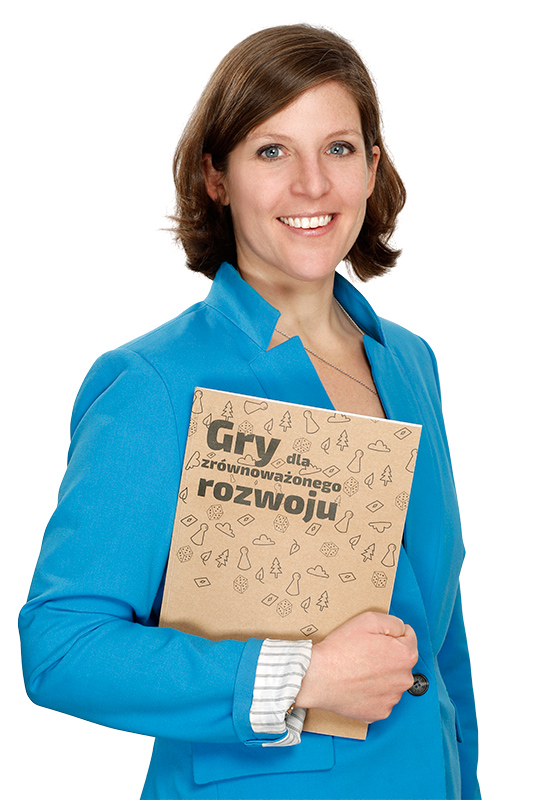
Amanda Anthony
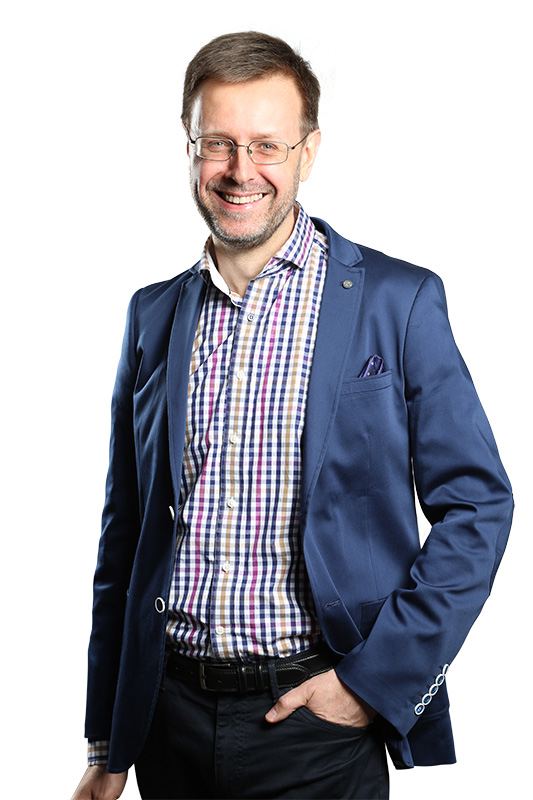
Piotr Magnuszewski
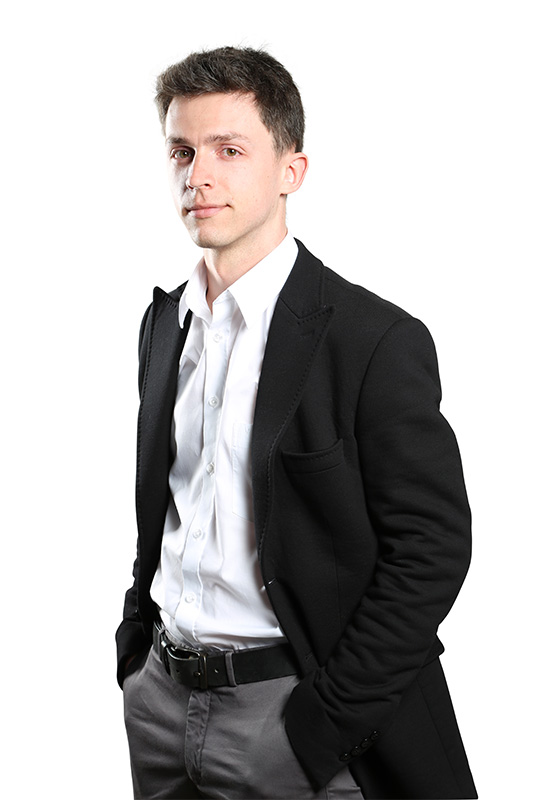
Bartosz Naprawa

Anna Koch
Ruritania Game was designed in cooperation with UNESCO, Replicators, and UNIBO teams.
contact us
The game was developed by Centre for System Solutions (CRS) in cooperation with project partners: United Nations Educational, Scientific And Cultural Organization (UNESCO), Replicators, and Alma Mater Studiorum – University of Bologna (UNIBO). The development was part of the project RURITAGE: Rural regeneration through systemic heritage-led strategies funded by the European Union’s Horizon 2020 research and innovation program under grant agreement No 776465.

